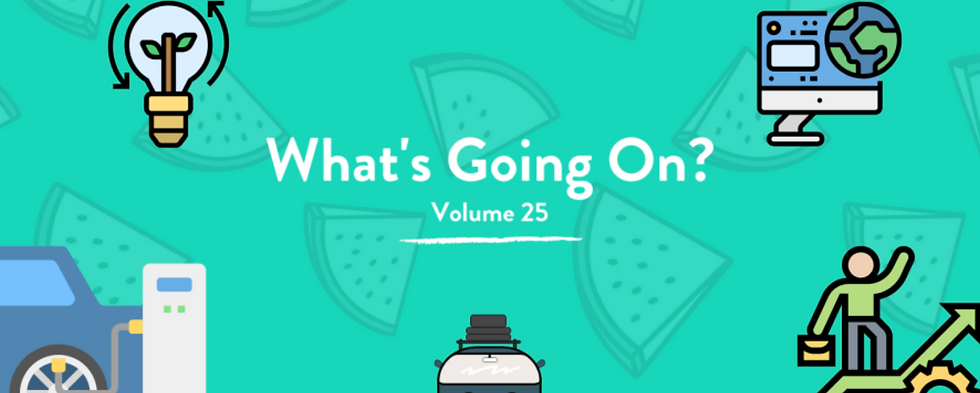The Pullback 📉
- Harsh Patel, CFA
- Jun 17, 2020
- 4 min read


We suspected this was a bear market rally which seemed unsustainable, driven more by optimism than fundamentals and this week, we saw some of those fundamental economic issues start to weigh on global stocks.
Fears of a second wave of COVID-19 combined with lacklustre economic data to prompt a stock market sell-off. This happened despite a bullish announcement from the Fed, in which Chairman Powell commented that they haven't even been "thinking about thinking about raising rates", indicating interest rates in the US are likely to stay at 0% until at least 2022.
Stock market volatility was on the rise this week, with companies in economically sensitive - or "cyclical" - sectors seeing meaningful share price swings. Carmakers, retailers, airlines and others rallied hard last Friday following the jobs report but were back in the red this week as the optimism of a faster-than-expected return to normal was tempered by talk of a second wave of infections increasingly likely to materialise in coming weeks.
Stock indices did end on a positive (and relatively stable) note yesterday however, reminding us all that investor optimism - and perhaps hope - remains ever present in stock markets.
To us, all of this simply reflects the 2020 reality that the road to recovery from COVID-19 will likely be a long and bumpy one, aided significantly by central banks and government spending. Geopolitical issues such as US / China trade and Brexit negotiations are likely to add to market volatility given there don't seem to be any clear resolutions on the horizon.
What's next?
Most stock markets seem fairly valued right now, assuming we see a strong earnings recovery aided by monetary and fiscal stimulus starting in 2021 and beyond.
With respect to the next few weeks, we expect to see top-down news flow continuing to drive stock market performance before Q2 earnings season kicks off in July.
We'll be looking out for progress on a COVID vaccine this month as a potential catalyst for markets to go higher. This needs to be weighed against potential news flow around a second wave of covid infections gathering pace following the recent easing of lockdown measures in numerous countries which has seen major economies get moving once again. Any potential talk of a return to lockdown could well be the catalyst which wipes out much of the stock market gains we've seen since the rebound began at the end of March, although a return to lockdown at this stage seems unlikely. Social distancing measures and a partial re-opening of the economy remains the likely outcome.
In Europe, we'll also be looking out for progress on the EU's proposed fiscal spending plan, with positive newsflow on this topic likely to reinforce the long-term investment case for European stock markets.
With a number of factors at play here for stock markets across the world, it remains important to weigh them up on a company-by-company basis. To that extent, here's a high-level summary of these factors to help you think through their relevance with respect to your own investment portfolios:
What's helping
Monetary stimulus: the US Fed / ECB continue buying corporate bonds, which helps keep a lid on uncertainty and therefore share price volatility.
Fiscal stimulus: government spending programs continue being rolled out across the US and Europe, with more likely to be announced over the next 1-2 months.
Credit availability: lending facilities for corporates remain open at major banks for those who need short term cash injections in order to survive. This has helped many companies avoid financial difficulties...so far.
Mergers & Acquisitions: this is a theme worth watching, but one which we think will become much more pronounced from Q3 onwards as companies start looking to merge in order to survive the COVID recession.
What's hurting
COVID lockdown part 2: as mentioned above, the potential additional economic damage that could be inflicted on companies should we have to go back into a full lockdown remains a worry for many investors.
Economic data & growth: despite a positive jobs report last Friday, other economic data points look less rosy. The UK announced a 20% decline in GDP for April, taking the country back to 2002 levels. It seems other countries are likely to publish similarly gloomy GDP data, and to add to this, the IMF also suggested economic recovery from COVID has been slower than expected thus far - expect to see further downward revisions for global GDP.
Current valuations: many stocks continue trading near pre-COVID levels, leading many to wonder how much higher they can go, if at all.
Given the numerous factors with market-moving potential at play here, we think it's worth maintaining perspective and taking a long term view towards your investments. Buying companies with strong balance sheets which are located within areas of the economy that are well positioned to grow in the future feels like the most sensible course of action to us - just be wary of elevated valuations before diving in!
We hope you have a great week ahead - until next time! 🍿🥤
Please know, the value of investments can go up as well as down and you may receive back less than your original investment, meaning, when investing your capital is at risk.
Disclaimer: At Evarvest we believe in making investing and investment education more accessible, but we don’t provide investment advice and individual investors should make their own decisions. While we try our best, we cannot ensure the accuracy of the information we provide.
This content is copyright protected by Evarvest Limited (12544579). Evarvest Limited refers to the Evarvest network and/or one or more of its subsidiaries, each of which is a separate legal entity.
Want this sent to your inbox as soon as it's available? Join the waitlist in the footer below and we'll send them to you each Saturday!